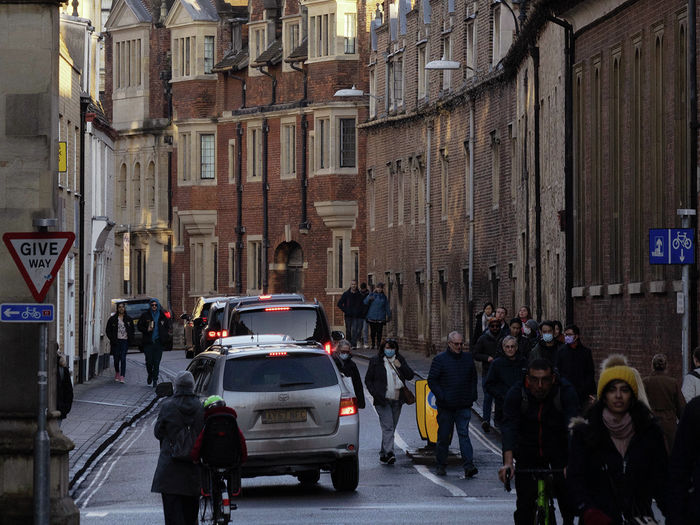The romance of one’s formative years
Arts Columnist Laila Hussey breaks down the enduring appeal of the varsity novel

The setting of any work of fiction is of critical importance. The best examples of this are those works where the setting almost becomes its own character and seems to live and breathe around the characters and plot, like Leith in Irvine Welsh’s Trainspotting or the Paris of Perfume by Patrick Süskind. Nowhere is this more true than in the varsity novel. Set in singularly impervious social bubbles, the potential to create a sense of cosiness – to fully integrate the reader into a society – is immense.
“The university is like a microcosm of wider society”
The varsity novel is a genre of fiction that is set at a university and is concerned primarily with the lives of the students. Most often, but not always, the university in question is either Oxford or Cambridge or some thinly veiled fictionalisation of one of the two. It is comparable, but slightly different, to the campus novel which, as the name suggests, is also set at university but focuses on the faculty too, rather than just the student body. There’s some overlap, but in general this is the defining distinction. The most famous varsity novels are Tom Sharpe’s Porterhouse Blues, Donna Tartt’s The Secret History, and, of course, Evelyn Waugh’s Brideshead Revisited, which is arguably the defining varsity novel: the one that set the precedent for every other varsity novel to follow.
But the real heart of the varsity novel lies in the intensity of the group dynamics it presents. There is something particularly special about the confined environment of the university and the social interactions within it. Like a microcosm of wider society, hierarchies are formed, norms and values are agreed upon, and a great amount of interest can come from creating tension within these. In this, the varsity novel is loosely like a chamber piece, with a set of characters interacting within one space – of course, not a locked room or train carriage, but on campus. Beyond the psychology of it, though, it’s appealing to be presented with a group of characters which one can feel part of, identify with, and form preferences about. A group of characters who are not distracted by the complexities of the wider world, bounded almost entirely by the confines of the campus, with everyone in the same place and at the same point of their lives.
“Nothing is ever as exciting as fiction presents it”
The undergraduate years are always of interest to people because they can be so formative, not just academically, but personally. It’s the reason why people love to recount their own university experiences in novel form: Donna Tartt, Bret Easton Ellis, and Jonathan Lethem – all the Bennington College class of 1986 – have all written works concerned with the university experience, drawing on their own time at the New England institution to create the fictional Hampden College (in the case of Tartt) or Camden College (Lethem and Ellis). The undergraduate period is a sort of sweet spot in which the issues and themes of student life can be “adult” enough to be considered relevant for an older audience. Yet, at the same time, the instability and insecurity of students that is so relatable to younger readers is also present.
The varsity novel’s appeal lies in its ability to convey an experience that many either wish they had, like to imagine they did have, or dream they will have. But the truth of the matter is that it perpetuates an unachievable experience of university life. People are not characters, and only rarely act as though they are, and eight-week terms do not follow a clear plot-arc in the way a novel does. Nothing is ever as exciting or intense as fiction presents it, yet we relish using unrealistic fiction to aggrandise our memories: Sharpe’s Porterhouse Blues makes us remember university with a satirical inflection, making the groundhog days of library visits and essay plans feel much funnier in hindsight. On the other hand, the realistic varsity novels, the ones that try to really capture what this time in life feels like, validate our experiences. But they too are misleading, for they articulate feelings of loneliness, insecurity, and anxiety in a way that is much more coherent and self-aware on that page than it usually feels in the moment.
What makes student-life interesting, and what makes us remember it as such even if in reality it is so often not, is that it represents a break, a turning-point in our lives, as we move from childhood to adulthood, which makes it inherently exciting. Just as it’s confusing to start university life, it’s equally confusing to interpret university life. It’s life-changing as a concept but often prosaic in practice. That goes for the varsity novel too – hyperbolic and mundane in equal parts.
 Fashion / Why did we stop wearing heels? 7 November 2024
Fashion / Why did we stop wearing heels? 7 November 2024 Music / Cambridge libraries as hit songs13 November 2024
Music / Cambridge libraries as hit songs13 November 2024 Features / Challenging tradition and dressing down in Cambridge5 November 2024
Features / Challenging tradition and dressing down in Cambridge5 November 2024 News / News in brief: royal visits and rabid waters12 November 2024
News / News in brief: royal visits and rabid waters12 November 2024 News / Cambridge cattle threatened by cow-ncil cuts11 November 2024
News / Cambridge cattle threatened by cow-ncil cuts11 November 2024





